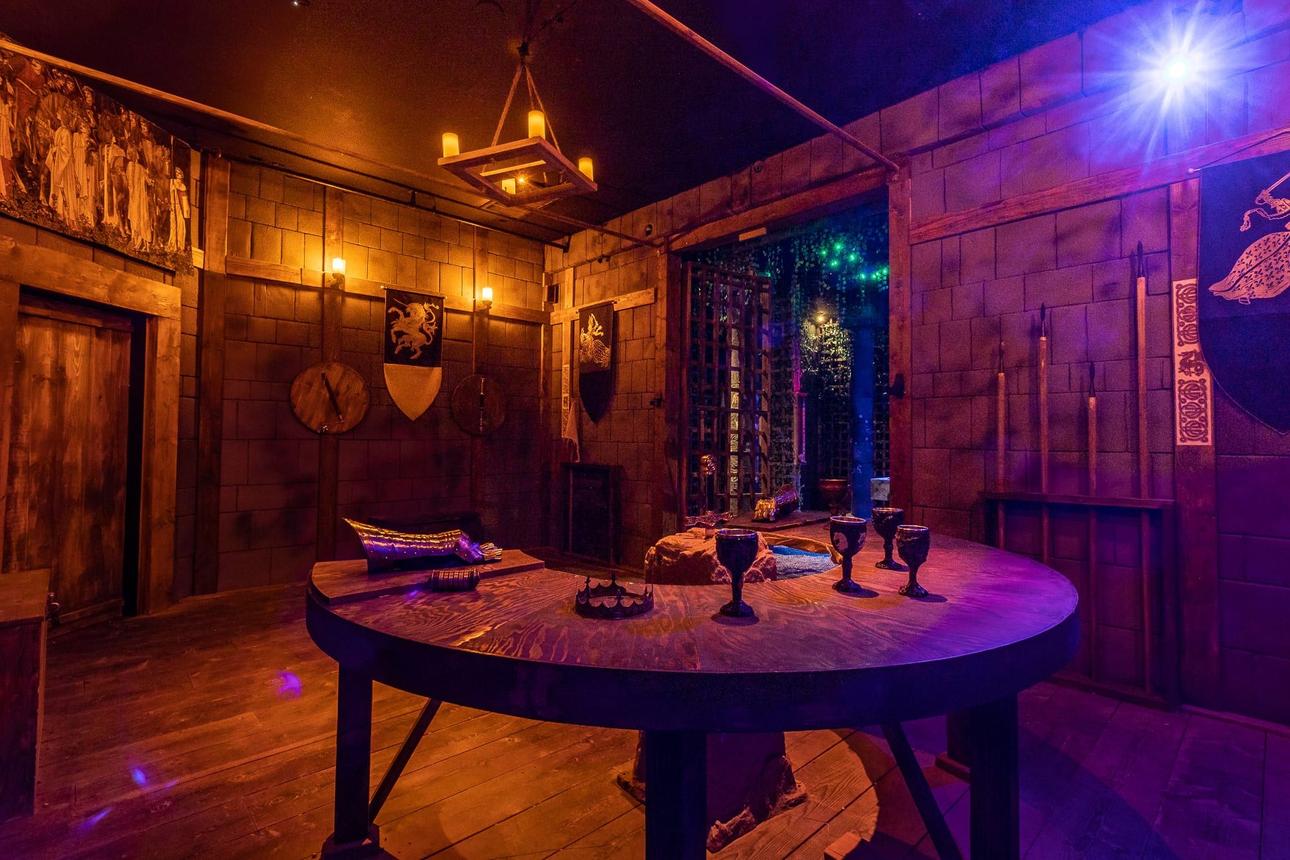Group Methods: How to Work together Successfully in a Getaway Area
Navigating the complexities of a getaway room necessitates greater than simple enthusiasm; it calls for a well-coordinated approach grounded in clear interaction, critical function tasks, and proficient time management. Groups must actively listen to every participant's understandings, assign roles that line up with private staminas, and preserve normal check-ins to make certain focus and protect against redundancy. By fostering a setting that values communication and versatility, teams can considerably enhance their performance and success prices. The subtleties of these approaches can change the experience, however just how specifically can they be implemented to make best use of the potential for success?
Establish Clear Communication

To facilitate clear interaction, it is necessary to designate a main factor of contact for details circulation. This function includes summarizing findings and suggested techniques to guarantee every person continues to be on the exact same page. Additionally, adopting a methodical approach to conversations can protect against chaotic exchanges. For example, quick, focused updates from each staff member can keep the group informed without frustrating them with info.

Assign Functions Tactically
While clear communication sets the foundation for efficient teamwork, assigning functions purposefully makes sure that each group member's strengths are used successfully. In a retreat room situation, the time-sensitive and complicated nature of difficulties demands a well-organized strategy to job delegation. By identifying and leveraging individual proficiencies, teams can maximize their analytical capacities and enhance total efficiency.
First, evaluate the special abilities and attributes of each individual. A person with an eager eye for detail could excel in locating covert objects, while a sensible thinker can be better suited to addressing puzzles. It's similarly vital to have a leader that can manage development, manage the timeline, and make decisive telephone calls when required. This duty usually calls for solid business and social skills.
Second, ensure that duties are adaptable and adaptable. As brand-new difficulties emerge, the team must have the ability to pivot, reapportioning tasks as required. This adaptability assists keep momentum and prevents bottlenecks that can happen because of stiff duty tasks.
Inevitably, a calculated technique to role job not only makes the most of the toughness of each employee however additionally fosters a natural environment, driving the team in the direction of an effective getaway.
Utilize Diverse Skills
Identifying and taking advantage of the diverse skills within your team can dramatically elevate your performance in a getaway area. Each employee brings distinct look at this website toughness to the table, and effectively leveraging these capabilities can speed up analytical and improve overall efficiency. As an example, a staff member with solid logical skills may succeed at decoding complex codes or patterns, while another with eager empirical capacities may promptly find covert clues that may overlook.
Urge team participants to voice their understandings and ideas immediately, guaranteeing that all possible solutions are considered. In addition, designating tasks that straighten with each participant's toughness can stop traffic jams and make sure that progress is continual.
Moreover, variety in skills often translates to diversity in thinking designs, which is very useful in a getaway room setting. While some obstacles may need sensible thinking and precision, others might profit from creative and association of ideas. By identifying and leveraging this variety, groups can attend to a wider variety of obstacles better, thus enhancing their possibilities of an effective escape.
Manage Time Effectively

First, allocate preliminary mins for a quick study of the area. Determine visible challenges and split jobs based upon staff member' strengths, making certain that no one is idle. Establish internal time checkpoints to examine development periodically; for example, objective to have half the challenges fixed by the mid-point of the video game. This method can assist keep the group focused and avoid time from escaping unnoticed.
Furthermore, prevent tunnel vision. If a problem is taking as well long, revolve team participants or go on to one more difficulty, returning later on with fresh point of views. Communication is critical-- keep everyone updated on solved challenges and remaining tasks to stay clear of redundant efforts.
Last but not least, use any type of tips or ideas sparingly but tactically - best escape room. Knowing when to request assistance can save useful time. By adhering to these time management principles, teams can dramatically improve their possibilities of an effective and satisfying retreat room experience
Debrief and Reflect
Reflection is a crucial facet of team growth and renovation in the context of retreat spaces. When the obstacle is completed, whether effectively or not, it is vital for the group to participate in an organized debriefing session. This process enables employee to examine their performance, recognize staminas, and pinpoint areas important link for improvement.
Start the debrief by reviewing what went well. Highlight specific instances of efficient interaction, analytic, and partnership. Recognizing these positive actions enhances them and motivates their repetition in future challenges.
Discuss moments of confusion, miscommunication, or inadequate strategies. Urge an open and useful dialogue where team members can share their viewpoints without worry of objection.
Final Thought
In verdict, successful partnership in a getaway space is predicated upon clear communication, strategic function projects, the efficient usage of diverse abilities, and skilled time administration. Regular check-ins and structured debriefings are vital for preserving focus and fostering continual improvement. By producing a cohesive and flexible group environment, the probability of efficiently solving problems and achieving the objective of getting away the area is considerably enhanced. This method not just ensures success but also advertises collective growth and understanding.